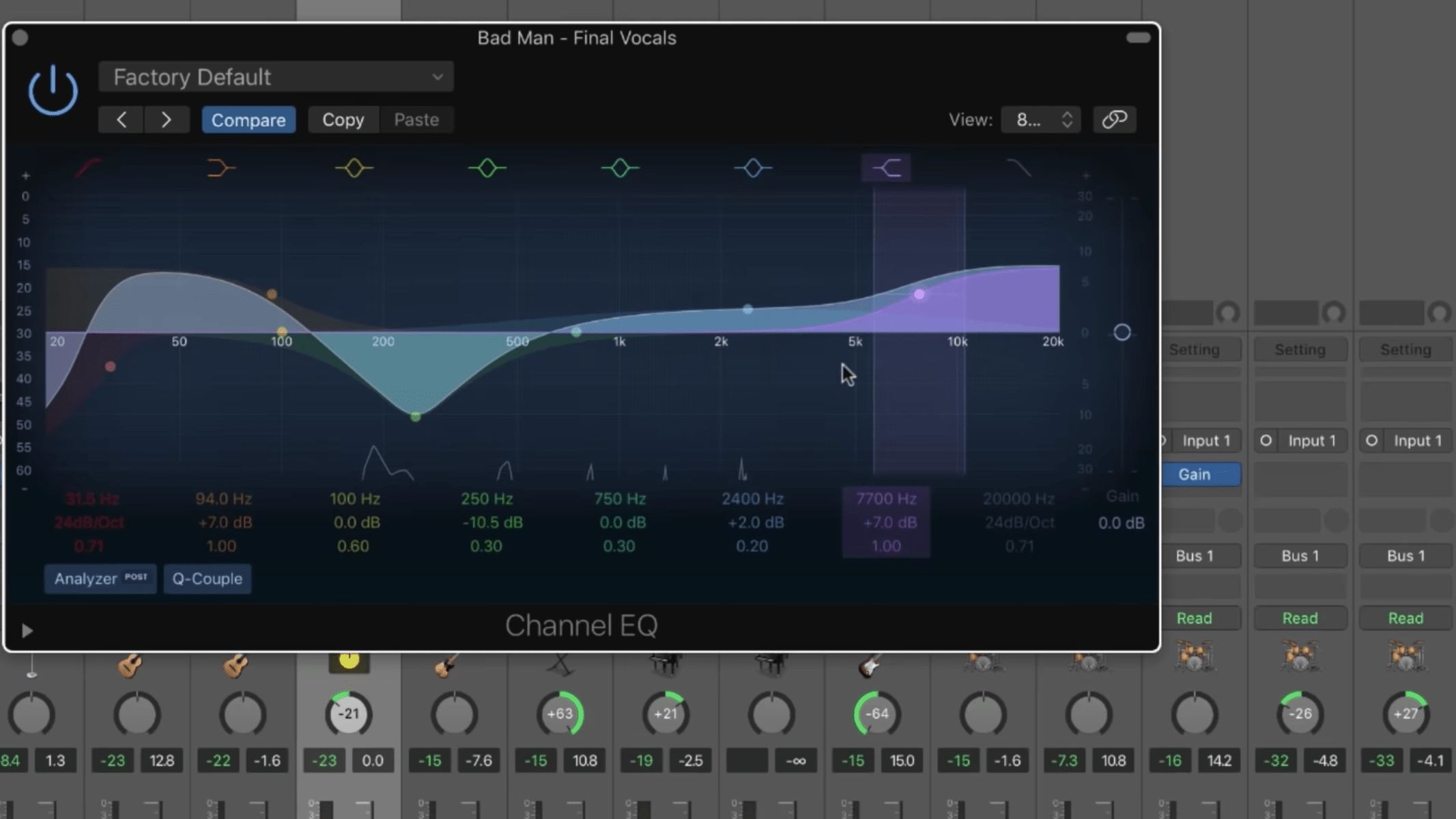Title: The Importance of EQ in Mixing and Mastering: Unleashing the Power of Sonic Precision
Introduction : In the realm of music production, where every note, beat, and lyric intertwines to create a sonic tapestry, the role of equalization (EQ) stands as a crucial element in achieving sonic excellence. Whether it's the mixing stage or the final touches of mastering, EQ acts as a potent tool that shapes the frequency spectrum, bringing clarity, balance, and depth to a composition. In this blog, we will delve into the significance of EQ in the context of mixing and mastering English, exploring its transformative power and undeniable impact on the overall sonic experience.
Section 1: Understanding EQ and Its Purpose : To comprehend the importance of EQ, one must first grasp its fundamental purpose. EQ, as the name suggests, equalizes the various frequency components of an audio signal, enabling sound engineers to sculpt and refine the sonic landscape. This powerful tool allows for precise adjustments to individual frequencies, helping to eliminate unwanted resonances, emphasize desired elements, and create a sense of space and separation between different instruments or vocal tracks.
Section 2: Enhancing Clarity and Definition : When it comes to mixing and mastering English, achieving clarity and definition in the vocals and instrumental elements is paramount. EQ comes to the rescue by accentuating the desired frequency ranges, ensuring that every word and instrument occupies its rightful place within the sonic spectrum. By skillfully using EQ, producers can remove muddiness, reduce masking effects, and bring out the natural character of each element, resulting in a more intelligible and enjoyable listening experience.
Section 3: Balancing the Frequency Spectrum : Another key aspect of EQ lies in its ability to balance the frequency spectrum. Each instrument or vocal track has its unique tonal characteristics, and EQ helps in harmonizing these elements to create a cohesive sonic blend. By identifying and addressing frequency clashes or imbalances, sound engineers can ensure that no element overpowers or gets buried within the mix. A well-balanced frequency spectrum provides the listener with a rich and immersive experience, where every component finds its place in the sonic canvas.
Section 4: Shaping the Mood and Emotion : Beyond technical considerations, EQ plays a significant role in shaping the mood and emotion of a musical piece. By selectively boosting or attenuating specific frequencies, producers can create a sense of warmth, brightness, depth, or even add a touch of nostalgia to the mix. EQ empowers the creative process by allowing artists and sound engineers to mold the sonic landscape in line with their artistic vision, invoking emotions that resonate with the listeners on a profound level.
Conclusion : In the world of mixing and mastering English, where the art of sonic manipulation meets technical finesse, the importance of EQ cannot be overstated. Its ability to enhance clarity, balance the frequency spectrum, and evoke emotions makes it an invaluable tool in the hands of music producers and sound engineers. By harnessing the power of EQ, one can unlock the true potential of a musical composition, ensuring that it captivates and mesmerizes listeners with its precision and sonic brilliance.





